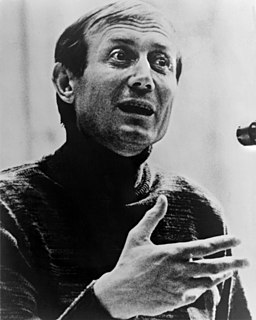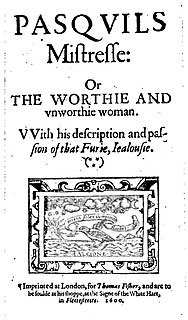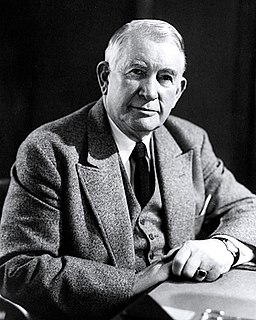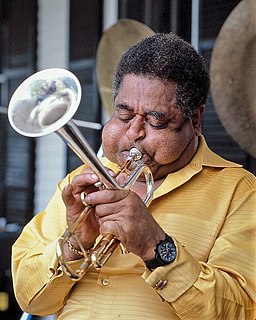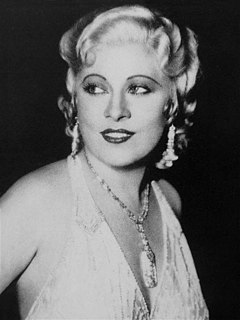A Quote by Horace
He has hay upon his horn. [He is a mischievous person.]
Quote Topics
Related Quotes
I do not like poems that resemble hay compressed into a geometrically perfect cube. I like it when the hay, unkempt, uncombed, with dry berries mixed in it, thrown together gaily and freely, bounces along atop some truck-and more, if there are some lovely and healthy lasses atop the hay-and better yet if the branches catch at the hay, and some of it tumbles to the road.
(from John Hay's diary) “The President never appeared to better advantage in the world,” Hay proudly noted in his diary. “Though He knows how immense is the danger to himself from the unreasoning anger of that committee, he never cringed to them for an instant. He stood where he thought he was right and crushed them with his candid logic.
The technologies which have had the most profound effects on human life are usually simple. A good example of a simple technology with profound historical consequences is hay. ... It was hay that allowed populations to grow and civilizations to flourish among the forests of Northern Europe. Hay moved the greatness of Rome to Paris and London, and later to Berlin and Moscow and New York.
The technologies which have had the most profound effects on human life are usually simple. A good example of a simple technology with profound historical consequences is hay. Nobody knows who invented hay, the idea of cutting grass in the autumn and storing it in large enough quantities to keep horses and cows alive through the winter. All we know is that the technology of hay was unknown to the Roman Empire but was known to every village of medieval Europe. Like many other crucially important technologies, hay emerged anonymously during the so-called Dark Ages.
Two diverse gates there are of bodiless dreams, These of sawn ivory, and those of horn. Such dreams as issue where the ivory gleams Fly without fate, and turn our hopes to scorn. But dreams which issue through the burnished horn, What man soe'er beholds them on his bed, These work with virtue and of truth are born.


